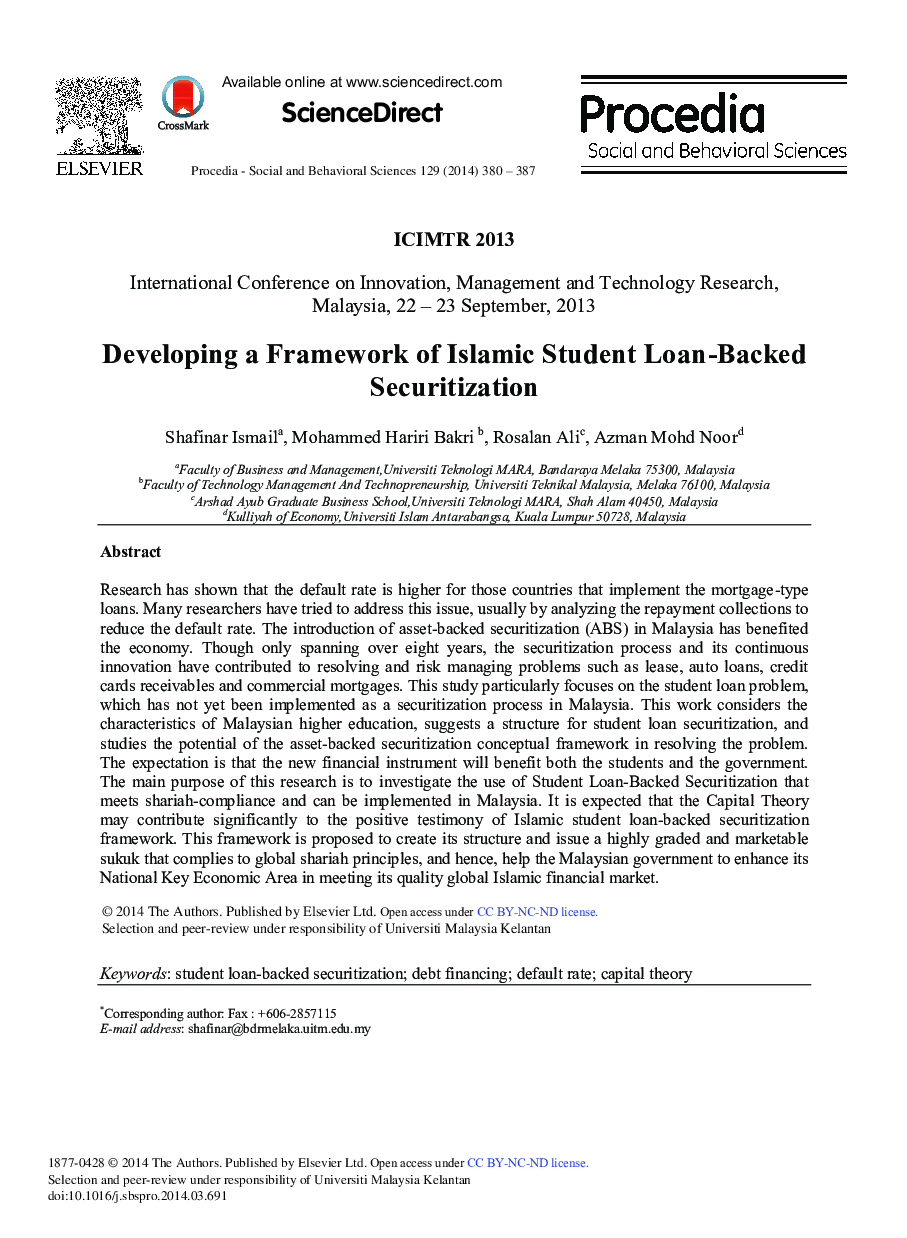| کد مقاله | کد نشریه | سال انتشار | مقاله انگلیسی | نسخه تمام متن |
|---|---|---|---|---|
| 1116647 | 1488430 | 2014 | 8 صفحه PDF | دانلود رایگان |
Research has shown that the default rate is higher for those countries that implement the mortgage-type loans. Many researchers have tried to address this issue, usually by analyzing the repayment collections to reduce the default rate. The introduction of asset-backed securitization (ABS) in Malaysia has benefited the economy. Though only spanning over eight years, the securitization process and its continuous innovation have contributed to resolving and risk managing problems such as lease, auto loans, credit cards receivables and commercial mortgages. This study particularly focuses on the student loan problem, which has not yet been implemented as a securitization process in Malaysia. This work considers the characteristics of Malaysian higher education, suggests a structure for student loan securitization, and studies the potential of the asset-backed securitization conceptual framework in resolving the problem. The expectation is that the new financial instrument will benefit both the students and the government. The main purpose of this research is to investigate the use of Student Loan-Backed Securitization that meets shariah-compliance and can be implemented in Malaysia. It is expected that the Capital Theory may contribute significantly to the positive testimony of Islamic student loan-backed securitization framework. This framework is proposed to create its structure and issue a highly graded and marketable sukuk that complies to global shariah principles, and hence, help the Malaysian government to enhance its National Key Economic Area in meeting its quality global Islamic financial market.
Journal: Procedia - Social and Behavioral Sciences - Volume 129, 15 May 2014, Pages 380-387
